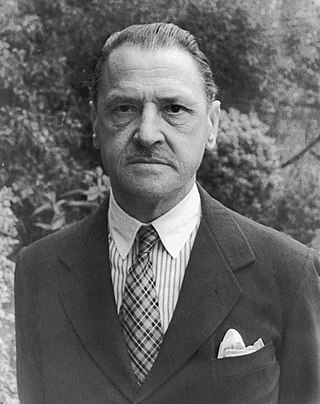
William Somerset Maugham was an English writer, known for his plays, novels and short stories. Born in Paris, where he spent his first ten years, Maugham was schooled in England and went to a German university. He became a medical student in London and qualified as a physician in 1897. He never practised medicine, and became a full-time writer. His first novel, Liza of Lambeth (1897), a study of life in the slums, attracted attention, but it was as a playwright that he first achieved national celebrity. By 1908 he had four plays running at once in the West End of London. He wrote his 32nd and last play in 1933, after which he abandoned the theatre and concentrated on novels and short stories.
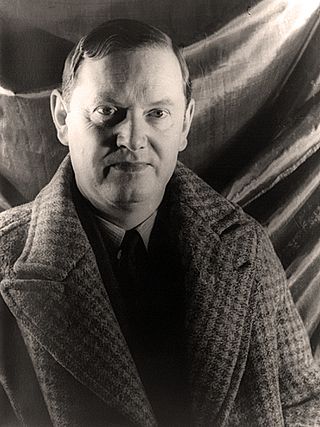
Arthur Evelyn St. John Waugh was an English writer of novels, biographies, and travel books; he was also a prolific journalist and book reviewer. His most famous works include the early satires Decline and Fall (1928) and A Handful of Dust (1934), the novel Brideshead Revisited (1945), and the Second World War trilogy Sword of Honour (1952–1961). He is recognised as one of the great prose stylists of the English language in the 20th century.
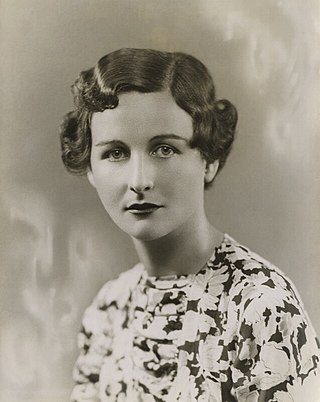
Nancy Freeman-Mitford, known as Nancy Mitford, was an English novelist, biographer, and journalist. The eldest of the Mitford sisters, she was regarded as one of the "bright young things" on the London social scene in the inter-war period. She wrote several novels about upper-class life in England and France, and is considered a sharp and often provocative wit. She also has a reputation as a writer of popular historical biographies.
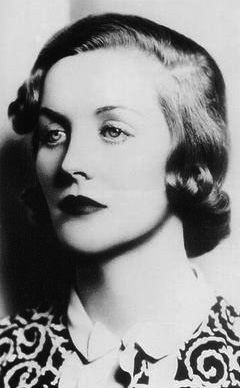
Diana, Lady Mosley, known as Diana Guinness between 1929 and 1936, was a British aristocrat, fascist, writer and editor. She was one of the Mitford sisters and the wife of Oswald Mosley, leader of the British Union of Fascists.

Earl of Huntingdon is a title which has been created several times in the Peerage of England. The medieval title was associated with the ruling house of Scotland.

Cap Ferrat is a cape situated in the Alpes-Maritimes department in Southeastern France. It is located in the commune of Saint-Jean-Cap-Ferrat.

The Ordeal of Gilbert Pinfold is a novel by the British writer Evelyn Waugh, first published in July 1957. It is Waugh's penultimate full-length work of fiction, which the author called his "mad book"—a largely autobiographical account of a period of hallucinations caused by bromide intoxication that he experienced in the early months of 1954, recounted through his protagonist Gilbert Pinfold.

William Benedict Herbert Nightingale is a British journalist, formerly a regular theatre critic for The Times newspaper. He was educated at Charterhouse and Magdalene College, Cambridge. His first published theatre review was for the Tunbridge Wells Advertiser in 1957, a production of Look Back in Anger by a local amateur group.

Rosamond Nina Lehmann was an English novelist and translator. Her first novel, Dusty Answer (1927), was a succès de scandale; she subsequently became established in the literary world, and intimate with members of the Bloomsbury set. Her novel The Ballad and the Source received particular critical acclaim.
Hubert John Duggan was an Argentine-born British Army officer and politician, who was Conservative Party Member of Parliament for Acton from 1931 until his death. He was an opponent of appeasement and broke the whip on several important occasions, voting to bring down Neville Chamberlain in 1940.

Francis John Clarence Westenra Plantagenet Hastings, 16th Earl of Huntingdon, styled Viscount Hastings until 1939, was a British artist, academic, and later a Labour parliamentarian.
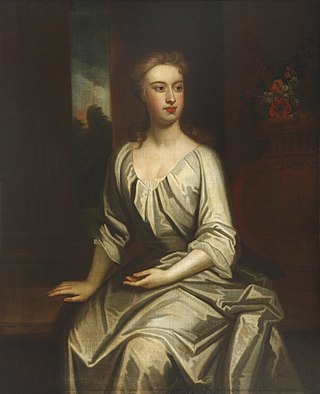
Lady Elizabeth Hastings, also known as Lady Betty, was an English philanthropist, religious devotee and supporter of women's education. She was an intelligent and energetic woman, with a wide circle of connections, including artists, writers and designers, an astute business investor and proponent of innovative farming techniques.
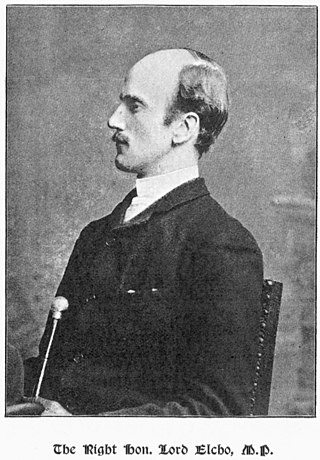
Hugo Richard Charteris, 11th Earl of Wemyss and 7th Earl of March DL, styled Lord Elcho from 1883 to 1914, was a British Conservative politician.
Combe Florey House in Combe Florey, Somerset, England is a country house dating from the early 18th century. It replaced an Elizabethan manor house which was pulled down after the English Civil War. The gatehouse to the original manor survives. In the mid-20th century, the house was home to the writer Evelyn Waugh who died there in 1966 and is buried next to the churchyard of the adjacent Church of St Peter & St Paul. Combe Florey House is a Grade II listed building.
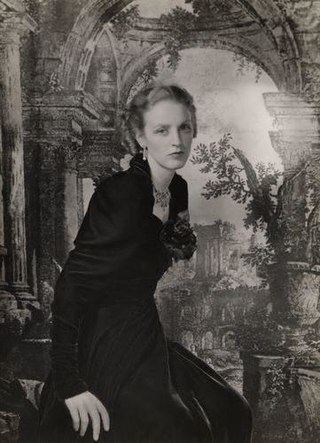
Lady Margaret Pansy Felicia Lamb, known as Lady Pansy Lamb was an English writer under her maiden name of Pansy Pakenham. A novelist, biographer, and translator of French poetry, she was the wife of the Australian-born painter Henry Lamb.

Babe Plunket Greene, birth registered as Enid Margot Bendir, was one of the 1920s English socialites known as the "Bright Young Things". She also used the surname of her mother's first husband, McGusty, and the first name "Marguerite".
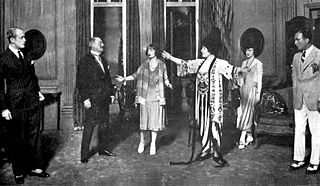
The Circle: a Comedy in Three Acts is a play by W. Somerset Maugham. It was first produced at the Haymarket Theatre, London on 3 March 1921, and has been revived several times in the West End and on Broadway.

Evelyn Florence Margaret Winifred Gardner was the youngest child of Herbert Gardner, 1st Baron Burghclere, and the first wife of Evelyn Waugh. She was one of the Bright Young Things.
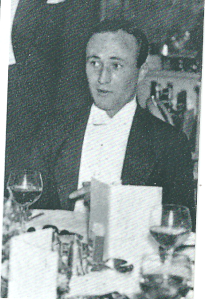
Charles Randolph Mark Ogilvie-Grant was a British diplomat and a botanist and one of the earliest members of the Bright Young Things. Despite his earliest frivolous past, he became a hero during the 1940–1941 Greek campaign.
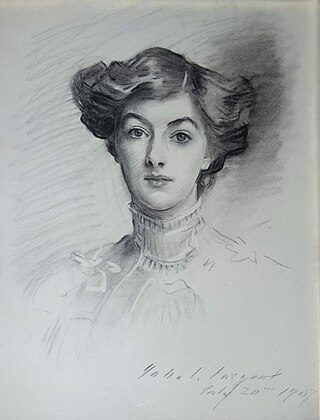
Katharine Frances Asquith was an English landowner and patron of the arts. During the First World War, she served as a Voluntary Aid Detachment nurse. She was the wife of Raymond Asquith and the daughter-in-law of wartime prime minister H. H. Asquith.


















